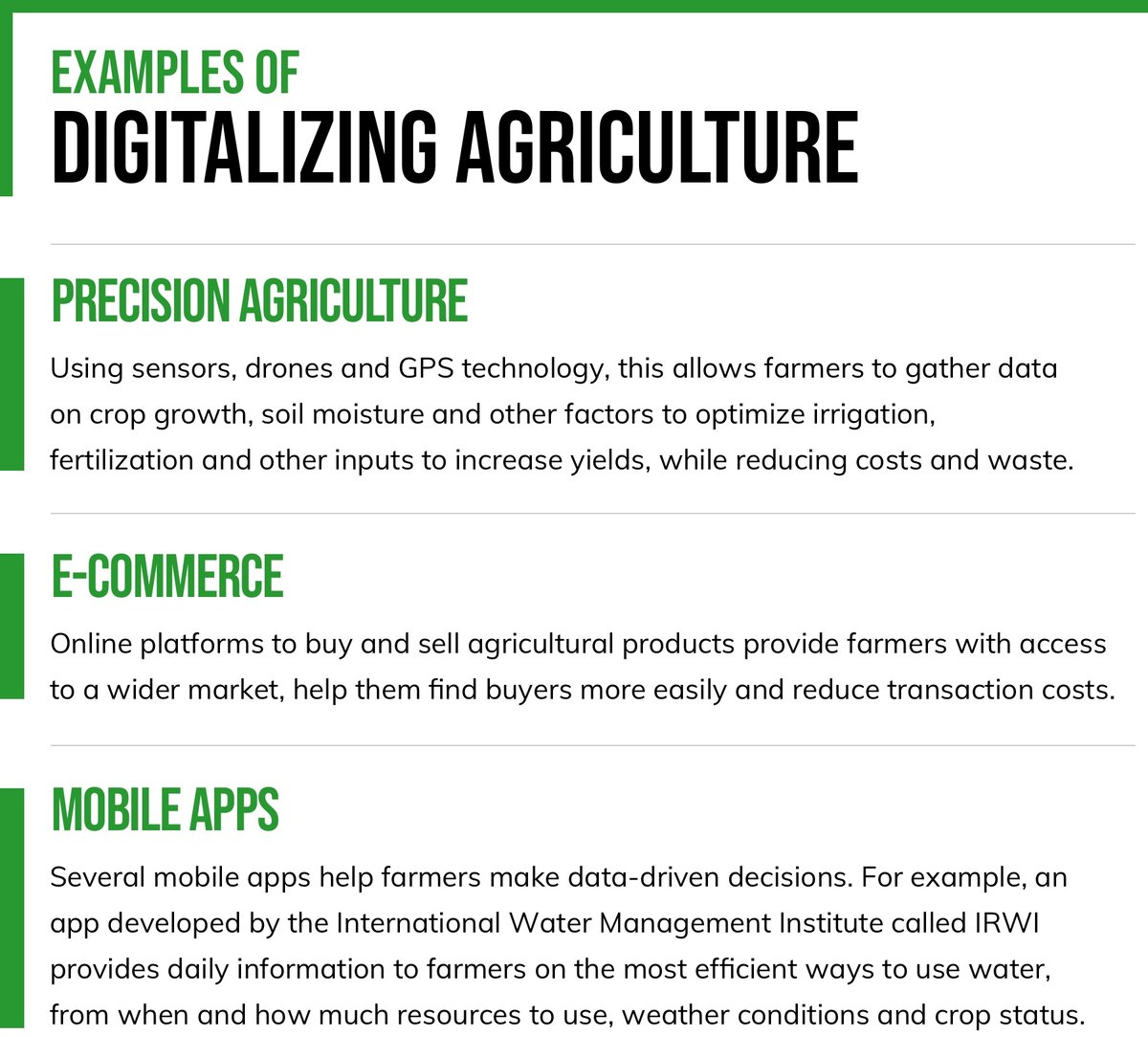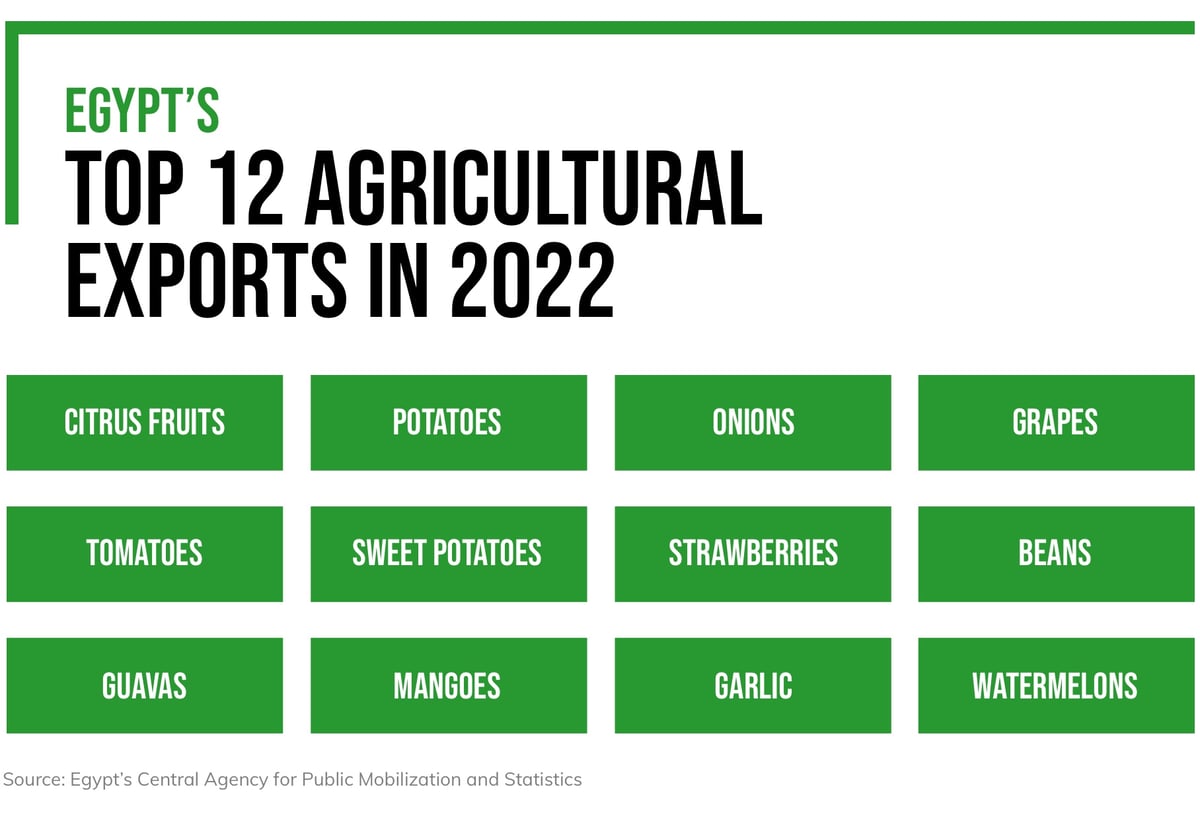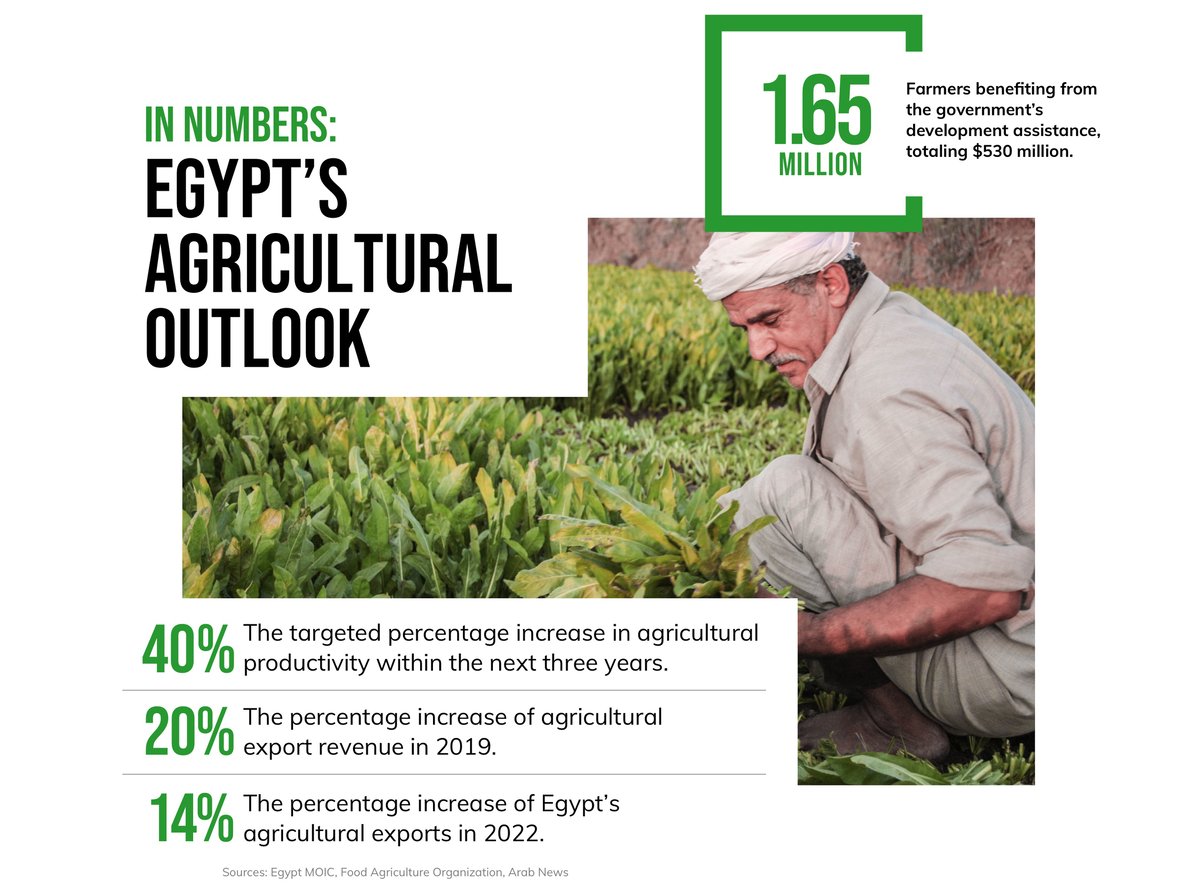Egypt’s Sustainable Agricultural Transformation Leverages Cutting-Edge Technology
Egypt’s agriculture sector is entering a new digital era as the country sets its sights on food security, economic inclusion and sustainability.
In a world grappling with disrupted food supplies, Egypt stands out as a success story for transforming its agricultural sector with advanced technologies.
Globally, the agricultural sector has been slow to embrace digital transformation despite the inefficiencies in current production processes. Currently, only 30% to 50% of what is grown is consumed. To maximize potential gains in production, Bloomberg Green suggests framing existing land more efficiently “through mechanization, better seeds and crop choices, and improved irrigation”.
Digitalizing agriculture involves using advanced technologies and data analysis to optimize the production process, reduce waste and increase profitability, while boosting inclusion in the sector. It’s a tall order, but a challenge that Egypt is meeting.


Building a sustainable agricultural industry is at the heart of Egypt’s national development strategy, Vision 2030. With a fast-growing population of more than 100 million, Egypt is the world’s biggest importer of wheat and the second-biggest importer of grain. Prioritizing food security and self-sufficiency is crucial for Egypt, especially at a time when relying on international supply chains is more precarious than ever.
In 2019-2020, net agricultural income reached an all-time high, amounting to EGP 364 billion ($12 billion). In 2020, agriculture accounted for 12% of Egypt’s GDP, with production valued at an estimated EGP 4 trillion ($130 billion). Today, efficiency is improving, yields are rising and agriculture accounts for 15% of Egypt’s GDP, 17% of its commodity exports and 25% of the country’s labor force. While the sector directly employs a quarter of the working population, the wider agricultural value chain employs 55% of Upper Egypt’s total population.

Against this backdrop, the government is investing in expanding strategies to support farmers, increase food production and enhance the country’s self-sufficiency. Prioritizing new land reclamation, crop diversification and empowering women and young people, the Egyptian government’s 1.5 Million Feddan megaproject, introduced in 2017, is now reaping benefits. At the same time, the government’s Sustainable Agriculture Investments and Livelihoods Project (SAIL) is catalyzing digital adoption in the sector. In 2022, for the first time, Egypt’s agricultural exports reached nearly 6.5 million tons, with a value of about $3.3 billion, which amounts to a 14% increase from 2021.

With its sights set on achieving food security and maximizing the efficient use of water resources, the 1.5 Million Feddan Project focuses on creating new job opportunities, while adding value to the production process by encouraging the digitalization and industrialization of the sector. The project, overseen by the state-owned Egyptian Countryside Development Company, operates at multiple sites across the country and is a key component of Egypt’s 2030 Vision strategic plan, which is aligned with the UN’s Sustainable Development Goals.
The 1.5 Million Feddan Project is at the core of Egypt’s agricultural renaissance, and aims to increase agricultural land by almost 20% through the creation of a new Egyptian countryside on reclaimed land.
As part of the project, an extensive network of 800-meter-deep water wells will be excavated in Farafra, a region famous for the chalky rock formations of the White Desert. Pumping facilities and oxidation basins have already been developed to extract water and remove minerals. Another large tract of land is being reclaimed for farming in the Minya Plain, south of Cairo.
In addition to accelerating land reclamation, the project will support the consumer goods and related sectors and help create sustainable rural communities, complete with new housing units and health and education services. It also promotes a variety of agricultural practices that rely on research and development, from using solar panels for power production to deploying advanced technology to identify areas where strategic crops can be cultivated.

Dr. Ali Hozayen, Chairman of the Board of the Executive Agency for Comprehensive Development Projects (EACDP) at Egypt’s Ministry of Agriculture and Land Reclamation, hails the 1.5 Million Feddan Project as a landmark. “It is a giant step forward,” he says. “It will create a large number of job opportunities and also create major roads to facilitate the logistics related to this megaproject.”
The project includes several initiatives to increase food production and improve living conditions in rural areas. For example, the 100,000 Greenhouses Project aims to reduce the amount of water used in cultivation and increase efficiency. By growing crops in greenhouses, the initiative is set to reduce water consumption by up to 70% compared to traditional farming methods. This project promotes the production of high-quality, locally produced fresh fruits and vegetables that are free of contaminants, and also supports an increase in production of flowers sold in local markets and beyond.

The Sustainable Agriculture Investments and Livelihoods Project (SAIL), another key government-led initiative, encourages Egyptian farmers to see the potential of new lands that can be developed for agriculture. The aim is to increase resilience to climate change impacts such as water scarcity, water salinity and increasing temperatures.
Backed by funding from the UN International Fund for Agricultural Development, SAIL began operations in 2016, covering an area of over 900 feddans (934 acres). “We help the farmers through good training on how to manage their projects and keep their animals in good condition,” explains Dr. Hany Darwish, SAIL’s Executive Director. “These spaces were reclaimed by the Egyptian government and distributed among young farmers, five feddans per farmer, including their house.” The result is that large amounts of former desert are now producing healthy crops.
SAIL’s main objective is to help smallholder farmers through agricultural extension services; marketing; raising awareness of the value of early-warning systems; agricultural innovation and technology; and sustainable farming practices. The initiative has a built-in early warning climate system that sends SMS notifications to farmers, based on data gathered from five meteorological stations that is verified using both global and regional models, and incorporates both long- and short-term trends for accuracy.
In addition to boosting agricultural production, maintaining animal breeds and advancing pollinator technologies, the program also offers a variety of income opportunities to its beneficiaries, who are mostly young people and women.

The national agriculture and rural development strategy empowers women in all activities and programs to become stakeholders in Egypt's agriculture sector and improve gender equality in the transition to an inclusive green economy.
“Inclusive growth begins with inclusive partnerships in order to identify tools and mechanisms that amplify the voices of all,” explains Dr. Rania A. Al-Mashat, Minister of International Cooperation in Egypt. According to the International Monetary Fund, if female labor force participation in Egypt was raised to match male participation, coupled with access to employment opportunities, the country’s GDP would increase by approximately 34%.
“The question is no longer why gender matters, but how gender can be integrated into development policy and translated into concrete actions, as well as including all stakeholders in the economy—from multilateral institutions and civil society to the private sector—and in the dynamic process of decision-making,”
— Dr. Rania A. Al-Mashat, Minister of International Cooperation in Egypt
